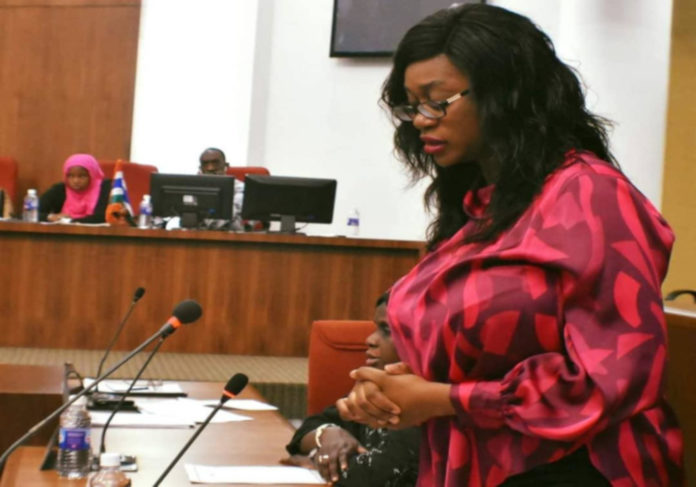By Yankuba Jallow
Gambia Supreme Court judges will on Tuesday deliver judgment on a civil suit instituted by former nominated National Assembly member Ya Kumba Jaiteh against the Attorney General.
Jaiteh is challenging what she described as her unconstitutional removal from Parliament by the head of state, President Adama Barrow, who nominated her to the position.
The case which began April last year, saw lawyers for the plaintiff and the defence making lengthy submissions before the Court.
In her contention, Lawyer Yassin Senghore for Yakumba said: “It is our submission that it is contrary to the principle of our democracy, to suggest as done by the Honourable Attorney-General, that the Plaintiff (Ya Kumba) is required to serve at the pleasure of the President.”
Counsel Senghore said this undermines the functions and roles of the NA if members would serve at the pleasure of the President.
“To suggest that in exercising your function as a member of the NA, you are exercising at the pleasure of the President falls foul to the principle of separation of power,” Counsel Senghore said.
Senghore argued that there is no provision of the law which gives the President the right to revoke Jaiteh’s membership of the National Assembly. She argued that the President can only exercise powers conferred on him by the law; Constitution and the Acts of the National Assembly. She raised the issue of the constitutional provisions for separation of powers, adding that the President belongs to the executive arm of the government while the plaintiff is a member of the legislature.
She said there is no distinction between an elected member and a nominated member. She argued that once a person becomes a nominated member of the National Assembly (NA), he or she can only be removed as set out under section 91 of the Constitution, which according to her explains the procedure of removal of a member of the NA.
Lawyer Senghore maintained that Section 91 does not vest any powers on the President to revoke the nomination of a member of the NA once the prescribed oath is taken and the person nominated is a substantive member of the NA. She cited 89(2) which according to her, provides that one does not become a member of the NA without taking the prescribed oath. She put forward that once a nominated member becomes a substantive member of the NA, he or she has the privileges and rights as elected members.
Counsel Senghore further argued that Section 91 is a specific provision whereas section 231 is a general provision. “When a specific provision has been made, reliance cannot be made on a general provision to defeat or contradict the specific provision.” She said the section that set out how a member of the NA can lose his/her seat is section 91.
Tambadou said the Constitution should not be read in piece but as a whole, adding that section 91 does not accord itself exclusivity for removing a member of the NA.
“Section 91 is not in conflict with 231,” he said.
He said the Plaintiff’s case lacks merit as he urged the court to declare that the President does not contravene any provisions of the Constitution.
“The Plaintiff (Ya Kumba) has failed to demonstrate with specivity any provision that the President violates,” he said.
He said the Constitution provides for the recall of elected members whereas what Ya Kumba is seeking, if held, will mean no one can recall a nominated member.
















